Appeal & Denial
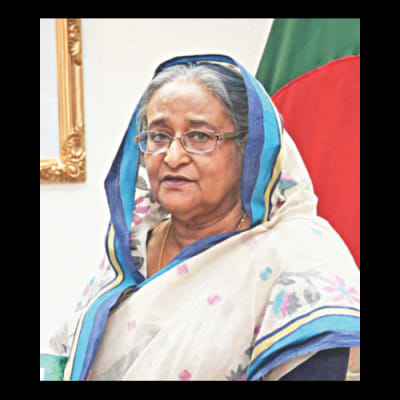
"Journalists who do not publish false news need not worry about the Digital Security Bill."
Prime Minister Sheikh Hasina
at a press briefing on October 3
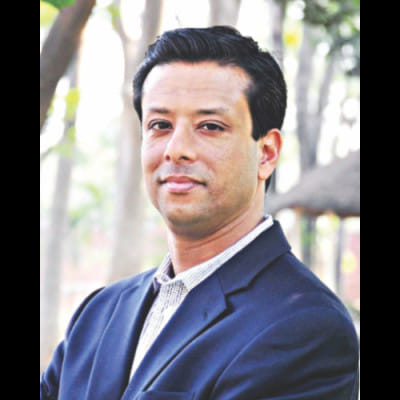
"Since editors are not willing to follow their own ethical guidelines, we can let the courts decide what is true and what is false. Arrest does not automatically mean imprisonment. The government has to prove they knowingly published falsehoods. The burden of proof is on the government. Journalists and editors who have no intention of publishing falsehoods have nothing to worry about."
Sajeeb Wazed Joy
Prime Minister Sheikh Hasina's ICT Affairs Adviser, in a Facebook post on September 30
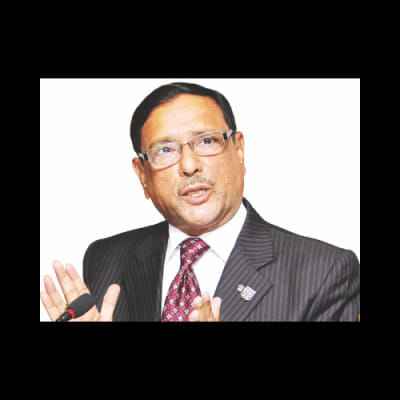
"The act is at the vetting stage at the law ministry. It will be sent again to the cabinet for approval. We will hold talks with all stakeholders before its finalisation. So nothing to be worried."
Obaidul Quader
Road Transport and Bridges Minister, at a view exchange meeting with the representatives of different print and electronic media on February 15
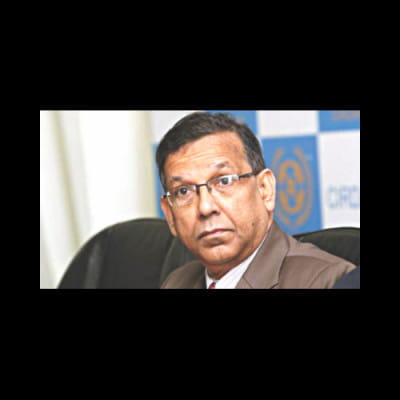
"The next cabinet meeting, scheduled for October 3, may not discuss the issue as it already has many other agendas for discussions. But the concerns of the Editors' Council will be placed before the cabinet meeting after this one."
Anisul Huq
Law Minister
after the meeting with the Editors' Council on September 30
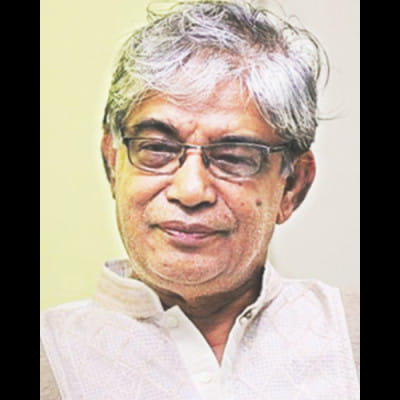
"We came out of the meeting, assuring them [the representatives] that their objections regarding eight sections of the proposed law will be considered.”
Mustafa Jabbar
Posts, Telecom and ICT Minister
told reporters after meeting representatives of the Editors' Council, Association of Television Channel Owners and Bangladesh Federal Union of Journalists on May 22
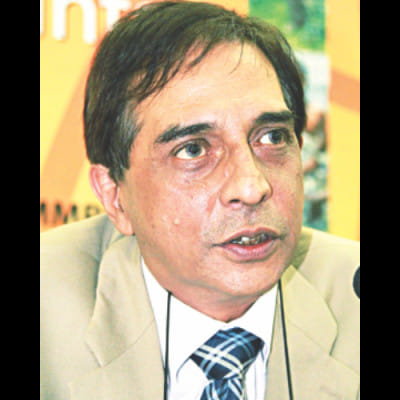
"We draw the example of the US democracy now and then; you may say the US is a developed country, so there can be no comparison with it.
“But can't we reach the level [of democracy] that the USA had reached some 200 years ago in 1791? The US constitution in 1791 stated that Congress won't be able to formulate any law that may gag the freedom of expression.
"That's it. What can be said and what not…they had said it 200 years ago. And here if we say anything, it would be a crime…we passed this law."
Eminent jurist Dr Shahdeen Malik
at a discussion on September 29
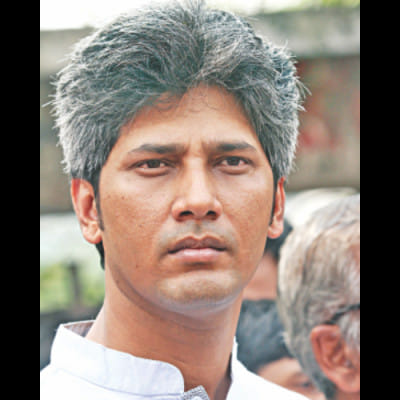
“Very few of the country's laws were as repressive as the Digital Security Bill.”
Zonayed Saki
chief coordinator of the central executive committee of Ganasamhati Andolon on October 6
“The meeting was very fruitful as all of us have reached a consensus that there will be no law which will contradict the constitution regarding the freedom of the press and the freedom of speech... We will not enact any law aiming at journalists or one that will create obstacles to independent journalism.”
Anisul Huq , Law Minister
told reporters after meeting with representatives of the three organisations on May 22
"The concerns of the Editors' Council are logical for the major part."
Anisul Huq, Law Minister
at a meeting with the Editors' Council at his office on April 19
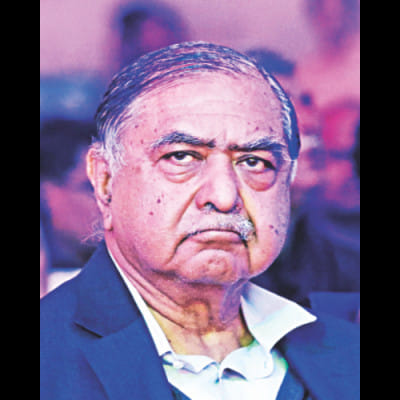
"It [the act] will empower a police official to search, seize and arrest anyone without warrant, causing risk of harassment through abusing the law."
Dr Kamal Hossain
Gono Forum President
said on September 23
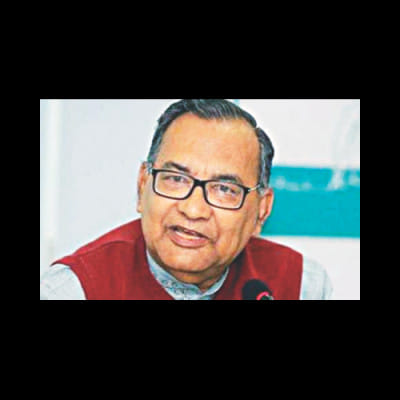
"This act is going to be formulated to give indirect indemnity to the corrupt.”
Mujahidul Islam Selim
president of Communist Party of Bangladesh (CPB) on January 31
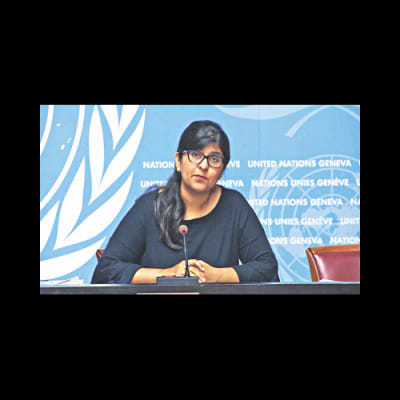
"We call on Bangladesh to urgently revise the Digital Security Act, to ensure that it is in line with international human rights law and that it provides for checks and balances against arbitrary arrest, detention, and other undue restrictions of the rights of individuals to the legitimate exercise of their freedom of expression and opinion. We stand ready to assist the Government."
Ravina Shamdasani
Spokesperson for the UN High Commissioner for Human Rights
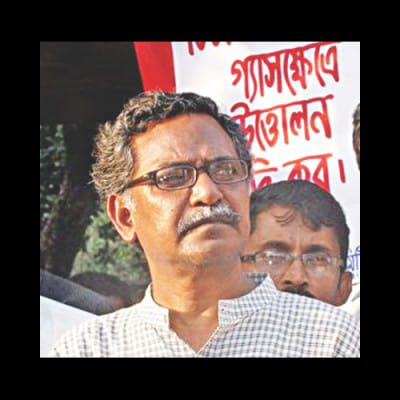
"This act will further stifle any remaining scope for free speech that Bangladesh had left since we view this act as a mere repackaging of the notorious section 57 of the Information and Communication Technology Act, 2013 with additional draconian provisions.”
Prof Anu Muhammad, member secretary of the National Committee to Protect Oil, Gas, Mineral Resources, Power, and Ports on Oct 6
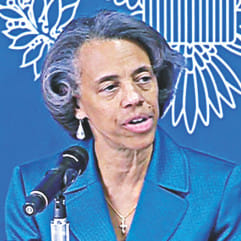
"The United States shares the concerns of the international community that the recently passed Digital Security Act (DSA) could be used to suppress and criminalize free speech, all to the detriment of Bangladesh’s democracy, development and prosperity. We welcome Information Minister Inu’s offer to meet with media representatives to discuss their concerns about the DSA. We encourage the Government of Bangladesh to consider changes to the law that would bring it into conformity with the Bangladesh Constitution and with Bangladesh’s international commitments on human, civil and political rights."
Marcia Bernicat, US Ambassador
in a statement on September 30
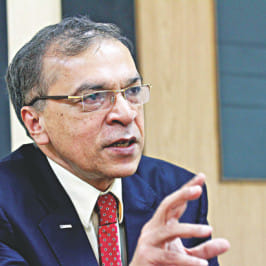
"A good many sections of the new law go against the spirit of the Liberation War as well as against freedom of thought and freedom of expression guaranteed by the constitution."
“The inclusion of provisions of the controversial Official Secrets Act 1923 in the law will create a corruption-friendly atmosphere... This law will create a feeling of insecurity among citizens in the name of digital security."
Iftekharuzzaman
Executive Director, Transparency International Bangladesh
said in a statement on September 20
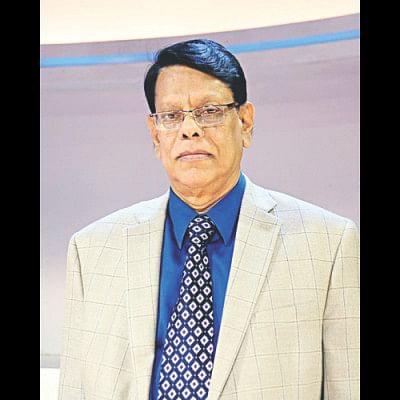
"Inclusion of the British era Official Secrets Act in the new law is regretful and frustrating. This goes against the main spirit of the constitution, especially the freedom of speech and freedom of the press."
Fakhrul Imam
Jatiya Party lawmaker
on September 20 in parliament
********************************** ***************************** *****************************
"In trying to make a law to prevent crimes through digital devices and provide security in the digital sphere the Act ends up policing media operations, censoring content and controlling media freedom and freedom of speech and expression as guaranteed by our constitution."
"The Act gives unlimited power to the police to enter premises, search offices, bodily search persons, seize computers, computer networks, servers, and everything related to the digital platforms. According to the Act, the police can arrest anybody on suspicion without warrant and do not need any approval of any authorities."
"The Act suffers from vagueness and uses many terms that can be misinterpreted and used against the media."
"DSA will create an atmosphere of fear and intimidation which will make journalism and especially investigative journalism virtually impossible."
"In addition to media professionals the law will create panic among all users of computers, computer network, etc.”
Editors' Council
in a write-up published on different dailies on September 29 explaining why it opposes the law
"The government also assured the journalists that there would be no such harsh provisions. But the bill was passed in the parliament ignoring the concerns and recommendations of journalists.”
Dhaka Reporters Unity (DRU) in a statement on September 24
"Although Section 57 has been repealed in the proposed law, it has been replaced in different sections of the proposed law in a new and harsher way.”
Workers Party of Bangladesh, a component of ruling Awami League-led alliance, in a statement on February 7
“Some provisions of the law unduly restrict the freedom of expression and the freedom of the media and undermine judicial procedural guarantees."
“We call upon the government of Bangladesh to continue consultations on this law and pursue the commitments taken during the Universal Periodic Review last May, so as to ensure that the Digital Security Act will be in accordance with the Universal Declaration of Human Rights, the International Covenant on Civil and Political Rights, as well as the Constitution of Bangladesh.”
Heads of missions of the European Union member states, the European Union delegation, and the heads of missions of Norway and Switzerland in a joint statement on September 27
“The government of Bangladesh acknowledges that the current section 57 of the ICT Act is draconian, and needs to go. But the new law [Digital Security Bill] being proposed is hardly an improvement, creating a series of new offences that will undoubtedly be used for years to come against government critics in the country's highly politicized criminal justice system.”
Human Rights Watch Asia Director Brad Adams on May 10
"The new Digital Security Act is a tool ripe for abuse and a clear violation of the country's obligations under international law to protect free speech."
"With at least five provisions criminalising vaguely defined types of speech, the law is a licence for wide-ranging suppression of critical voices... Several provisions violate international standards on free expression."
"The passage of this law utterly undermines any claim that the government of Bangladesh respects freedom of speech."
"Unless parliament moves swiftly to repeal the law it just passed, the rights of the country's citizens to speak freely will remain under serious threat.”
Human Rights Watch Asia Director Brad Adams in a statement on September 26
“This law imposes dangerous restrictions on freedom of expression."
"Given how the authorities have arbitrarily arrested hundreds of people in the past six years under the Information and Communication Technology Act, there are serious concerns that the new Act will be used against people who speak out."
"The government must revert its course from this regressive law, that compromises its international commitments; and ensure they fully uphold the right to freedom of expression as protected by international human rights law.”
Amnesty International's South Asia campaigner Saad Hammadi in a statement on September 20
"Whilst yesterday's [Wednesday's] Parliamentary approval of the Digital Security Act (DSA) -- which now awaits presidential approval -- stands to repeal section 57 of the ICT Act, its most problematic elements will be replicated.
"It is deeply regrettable that despite the laudable commitments made -- including as part of this UPR -- to ensure its compliance with international human rights law, the legislation has not been revised."
"The DSA promises to impose far-reaching restrictions on online expression, affecting all Internet users in Bangladesh: broadly criminalising and imposing wholly disproportionate punitive measures for expression lawful under international law. New, and overbroad powers to block and remove online content without judicial oversight, are also of deep concern.”
ARTICLE 19
in a statement on September 20
“CPJ respectfully urges you to exercise your constitutional authority to return the legislation to parliament for revisions that would eliminate these dangers.”
"One of the most worrisome provisions of the Digital Security Act is an amendment added at the last minute in Section 43, which will allow police to arrest or search individuals without a warrant. In addition, the Digital Security Act includes problematic aspects of Section 57 of the Information and Communications Technology Act, despite public promises by government ministers to eliminate it.”
"Bangladesh has a proud history as a secular democracy with strong affirmations of human rights and freedom of speech and the press. This legislation promises to damage that tradition, and to severely harm Bangladesh's standing among the community of democracies as a defender of press freedom.”
The Committee to Protect Journalists in a letter to President Abdul Hamid on September 22
"The bill if approved by parliament in the current form will have a serious, oppressive impact not only on journalists but also on all citizens of Bangladesh.”
International Press Institute (IPI) in the letter to Prime Minister Sheikh Hasina on August 10
"The act retained different aspects of section 57 of the ICT Act to curb freedom of expression."
“Section 32 of the Digital Security Act is contradictory to freedom of thoughts, freedom of expression, and freedom of the press guaranteed by the constitution.”
Ain O Salish Kendra in a statement on September 20
“The Digital Security Act not only contradicts parts of the RTI Act, but also raises questions about the government's capacity to be consistent in law-making."
"The Digital Security Act creates wide opportunities to restrict the space for raising informed public opinions and ensuring transparency and accountability of public institutions, reducing corruption, and establishing good governance as outlined in the preamble of the RTI Act 2009."
"The Digital Security Act is clearly inconsistent with the fundamental constitutional rights to freedom of speech and expression as per Article 39 of the Constitution and, therefore, undermines democracy and human rights, which are among the fundamental principles of state policy.”
The Right to Information Forum, a coalition of more than 45 organisations, in a statement on September 24
"Sections 8, 28, 29 and 31 of the act can be misused to harass citizens, gag the press and repress freedom of expression."
"According to the provision of the newly passed Digital Security Act-2018, police can search, seize and arrest anyone without warrant. Therefore, we apprehend, police can harass general citizens abusing the law.”
Shushashoner Jonno Nagorik in a statement on September 22
“The new law is detrimental to the evolution of Bangladesh as a free, matured and modern democratic society.”
Twenty-four professionals and academics from Bangladeshi diaspora in a statement on October 6

 For all latest news, follow The Daily Star's Google News channel.
For all latest news, follow The Daily Star's Google News channel. 

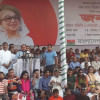

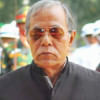



Comments